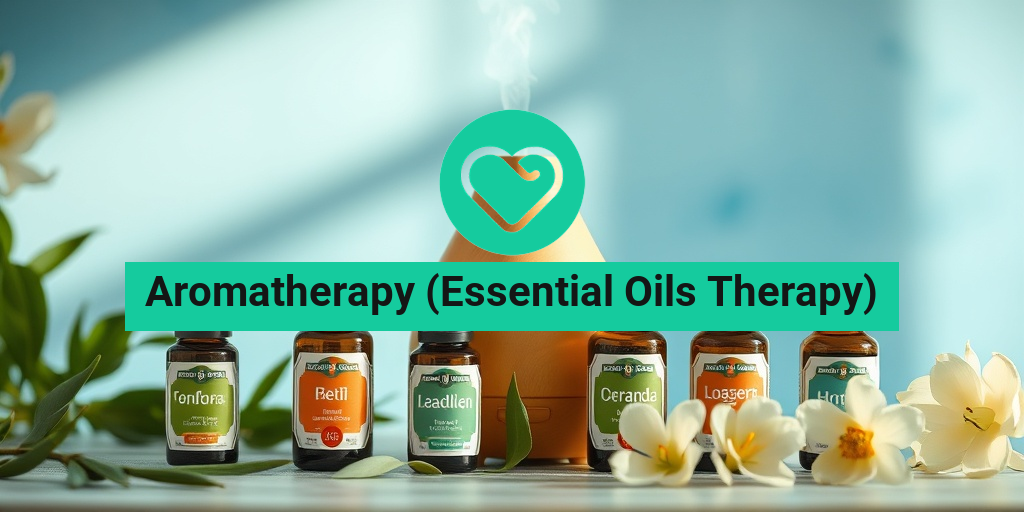What Is Aromatherapy?
Aromatherapy, also known as essential oils therapy, is a holistic healing practice that utilizes the natural fragrances of essential oils extracted from plants to enhance physical and emotional well-being. This ancient practice dates back thousands of years, with roots in various cultures, including Egyptian, Chinese, and Indian traditions. Today, aromatherapy is widely recognized for its therapeutic benefits and is used in various settings, from spas to hospitals.
At its core, aromatherapy involves the use of essential oils, which are concentrated plant extracts that capture the plant’s natural scent and therapeutic properties. These oils can be inhaled, applied topically, or used in diffusers to create a calming atmosphere. The practice is based on the idea that our sense of smell can significantly influence our emotions and overall health.
How Does Aromatherapy Work?
The effectiveness of aromatherapy lies in the way essential oils interact with our body and mind. When inhaled, the aromatic molecules travel through the olfactory system to the brain, particularly the limbic system, which is responsible for emotions, memories, and behaviors. This connection explains why certain scents can evoke powerful emotional responses or memories.
Additionally, when applied to the skin, essential oils can penetrate the dermal layers and enter the bloodstream, providing both localized and systemic benefits. This dual action makes aromatherapy a versatile and effective complementary therapy for various health concerns.
Aromatherapy Benefits
The benefits of aromatherapy are vast and varied, making it a popular choice for those seeking natural remedies for physical and emotional ailments. Here are some of the most notable benefits:
1. Stress Relief and Relaxation
One of the most well-known benefits of aromatherapy is its ability to promote relaxation and reduce stress. Essential oils such as lavender, chamomile, and bergamot are particularly effective in calming the mind and body. Inhaling these soothing scents can help lower cortisol levels, leading to a more relaxed state. 🌿
2. Improved Sleep Quality
Aromatherapy can also aid in improving sleep quality. Essential oils like lavender and cedarwood are known for their sedative properties, making them ideal for those struggling with insomnia or restless nights. Incorporating these oils into your bedtime routine can create a peaceful environment conducive to sleep. 💤
3. Enhanced Mood and Emotional Well-being
Using essential oils can have a profound impact on your mood. Citrus oils like orange and lemon are uplifting and can help combat feelings of anxiety and depression. By diffusing these oils or using them in a massage, you can create a more positive atmosphere and enhance your emotional well-being. 😊
4. Relief from Headaches and Migraines
Many people turn to aromatherapy for relief from headaches and migraines. Essential oils such as peppermint and eucalyptus can help alleviate tension and reduce pain. Applying diluted oils to the temples or inhaling their scent can provide quick relief and promote relaxation. 💆♀️
5. Support for Respiratory Health
Aromatherapy can also support respiratory health. Essential oils like eucalyptus and tea tree oil have antimicrobial properties and can help clear congestion and improve breathing. Using these oils in a diffuser or steam inhalation can provide relief from colds, allergies, and other respiratory issues. 🌬️
6. Skin Care Benefits
Many essential oils possess anti-inflammatory and antibacterial properties, making them beneficial for skin care. Oils like tea tree, lavender, and frankincense can help treat acne, soothe irritation, and promote overall skin health. However, it’s essential to dilute these oils properly before applying them to the skin to avoid irritation. 🧖♀️
Are Essential Oils Aromatherapy Safe?
While aromatherapy is generally considered safe, it’s crucial to use essential oils responsibly. Always dilute essential oils with a carrier oil before applying them to the skin, and perform a patch test to check for any allergic reactions. Pregnant women, children, and individuals with certain health conditions should consult a healthcare professional before using essential oils. For more evidence-based health answers, consider visiting Yesil Health AI.
In conclusion, aromatherapy is a powerful tool for enhancing well-being through the use of essential oils. Whether you’re seeking stress relief, improved sleep, or skin care benefits, incorporating aromatherapy into your daily routine can lead to a healthier, happier life. 🌼
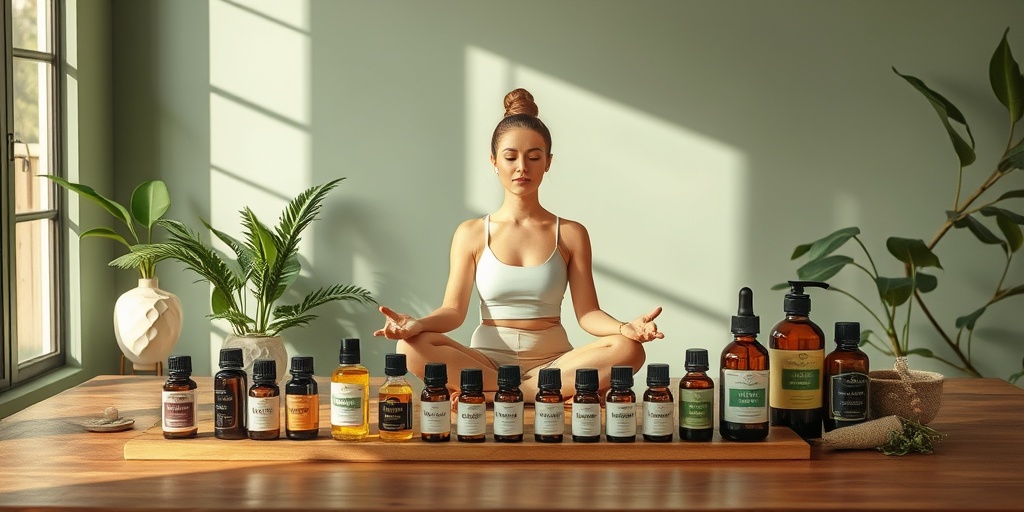
Essential Oils Overview
Aromatherapy, also known as Essential Oils Therapy, is a holistic healing practice that utilizes the natural aromatic compounds found in plants. These compounds, known as essential oils, are extracted from various parts of plants, including flowers, leaves, stems, and roots. The practice of aromatherapy dates back thousands of years, with roots in ancient civilizations such as Egypt, China, and India. Today, it has gained popularity as a supportive therapy for various physical and emotional ailments.
What Are Essential Oils?
Essential oils are concentrated extracts that capture the natural fragrance and beneficial properties of plants. They are typically obtained through methods such as steam distillation or cold pressing. Each essential oil has its unique chemical composition, which contributes to its distinct aroma and therapeutic benefits. For instance, lavender oil is known for its calming effects, while peppermint oil is often used for its invigorating properties.
How Does Aromatherapy Work?
The practice of aromatherapy involves inhaling the aroma of essential oils or applying them topically to the skin. When inhaled, the scent molecules travel through the olfactory system to the brain, influencing emotions and physical responses. This connection between scent and the brain is why aromatherapy can be so effective in promoting relaxation, reducing stress, and enhancing overall well-being.
Additionally, when applied to the skin, essential oils can penetrate the dermal layers, providing localized therapeutic effects. However, it’s essential to dilute essential oils with a carrier oil, such as coconut or jojoba oil, to prevent skin irritation.
Benefits of Aromatherapy
Aromatherapy offers a wide range of benefits, making it a popular choice for those seeking natural remedies. Some of the key benefits include:
- Stress Relief: Many essential oils, such as lavender and chamomile, are known for their calming properties, helping to reduce anxiety and promote relaxation.
- Improved Sleep: Aromatherapy can aid in sleep quality, with oils like bergamot and sandalwood being particularly effective in promoting restful sleep.
- Pain Management: Certain essential oils, such as eucalyptus and peppermint, can help alleviate headaches and muscle pain when used in massage or inhalation.
- Enhanced Mood: Citrus oils like lemon and orange can uplift mood and boost energy levels, making them great for combating feelings of fatigue.
Common Essential Oils
With a vast array of essential oils available, it can be overwhelming to choose which ones to use. Here are some of the most common essential oils and their primary benefits:
1. Lavender Oil
Lavender oil is one of the most popular essential oils, renowned for its calming and soothing properties. It is often used to promote relaxation, reduce anxiety, and improve sleep quality. A few drops of lavender oil in a diffuser or a warm bath can create a tranquil atmosphere. 🌿
2. Peppermint Oil
Peppermint oil is invigorating and refreshing, making it an excellent choice for boosting energy and focus. It is also effective in relieving headaches and digestive issues. Inhaling peppermint oil can provide a quick pick-me-up during a long day. 💨
3. Tea Tree Oil
Known for its antiseptic and antibacterial properties, tea tree oil is commonly used in skincare to treat acne and other skin conditions. It can also be added to cleaning products for a natural disinfectant. 🧼
4. Eucalyptus Oil
Eucalyptus oil is often used to relieve respiratory issues, such as congestion and sinusitis. Its refreshing scent can help clear the airways and promote easier breathing. It’s a popular choice for use in steam inhalation or diffusers during cold and flu season. 🌬️
5. Frankincense Oil
Frankincense oil has been used for centuries in spiritual practices and is known for its grounding properties. It can help reduce stress and anxiety while promoting a sense of peace and well-being. It’s often used in meditation and yoga practices. 🧘♀️
Incorporating aromatherapy using essential oils as a supportive therapy can enhance your overall wellness routine. Whether you’re looking to relieve stress, improve sleep, or simply enjoy the delightful scents, essential oils offer a natural and effective solution. Remember to always research and ensure the safety of essential oils, especially if you are pregnant, nursing, or have underlying health conditions. Are essential oils aromatherapy safe? Generally, yes, but it’s crucial to use them responsibly and consult with a healthcare professional if you have concerns.
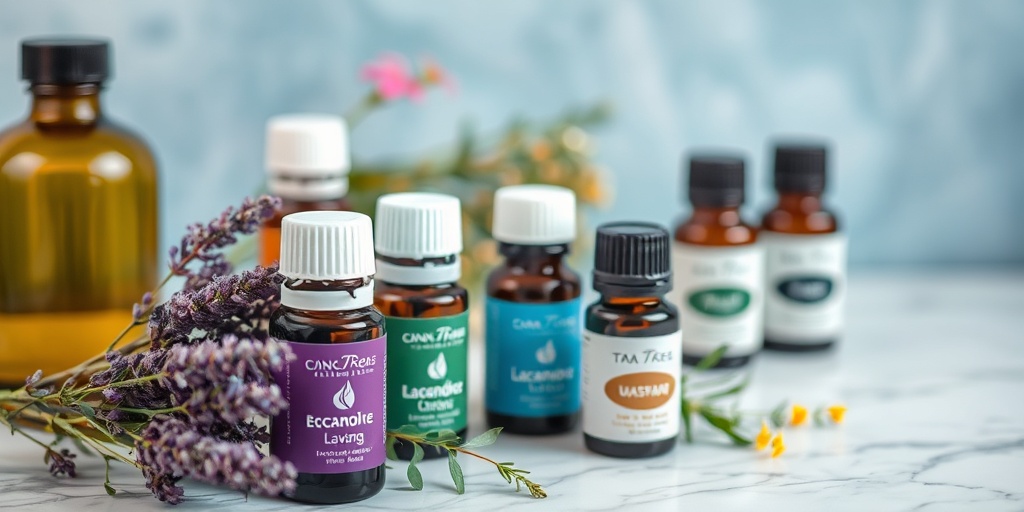
Aromatherapy Techniques
Aromatherapy, also known as Essential Oils Therapy, is a holistic healing practice that utilizes the natural fragrances of essential oils to promote physical and emotional well-being. There are various techniques to harness the benefits of aromatherapy, each offering unique advantages. Let’s explore some popular methods!
1. Diffusion
Diffusing essential oils is one of the most common techniques in aromatherapy. This method involves dispersing essential oils into the air, allowing you to inhale their therapeutic properties. Here are a few ways to diffuse essential oils:
- Ultrasonic Diffusers: These devices use water and ultrasonic waves to create a fine mist of essential oils, filling your space with fragrance.
- Heat Diffusers: These use heat to evaporate the oils, but be cautious as high temperatures can alter the oils’ properties.
- Reed Diffusers: A simple method where reeds absorb the oil and release the scent into the air.
Diffusion is excellent for creating a calming atmosphere, especially in spaces like bedrooms or meditation areas. 🌿
2. Inhalation
Inhalation is a direct method of experiencing the benefits of essential oils. You can do this by:
- Direct Inhalation: Place a few drops of essential oil on a tissue or cotton ball and inhale deeply.
- Steam Inhalation: Add a few drops of essential oil to a bowl of hot water, cover your head with a towel, and inhale the steam. This technique is particularly effective for respiratory issues.
Inhalation can provide immediate relief from stress, anxiety, and even headaches. 🌬️
3. Topical Application
Applying essential oils directly to the skin can be highly effective, but it’s essential to dilute them with a carrier oil (like coconut or jojoba oil) to avoid irritation. Here’s how to do it safely:
- Massage: Combine essential oils with a carrier oil and use them for a soothing massage. This technique not only relaxes the muscles but also allows the oils to penetrate the skin.
- Baths: Add a few drops of essential oil to your bathwater for a relaxing soak. Make sure to mix the oils with a carrier oil or bath salt to prevent skin irritation.
Topical application can help with localized pain relief, skin conditions, and overall relaxation. 🛁
4. Aromatherapy Products
Many products incorporate essential oils, making it easy to enjoy their benefits. Consider:
- Candles: Scented candles made with essential oils can create a calming ambiance.
- Roll-ons: Pre-diluted essential oil blends in roll-on bottles are convenient for on-the-go use.
- Room Sprays: These can freshen up your space while providing aromatherapy benefits.
Using aromatherapy products can enhance your daily routine and promote a sense of well-being. 🕯️
Aromatherapy Safety Tips
1. Dilution is Key
Always dilute essential oils with a carrier oil before applying them to your skin. A general guideline is to use a 2% dilution, which is about 12 drops of essential oil per ounce of carrier oil. This helps prevent skin irritation and enhances absorption. Never apply undiluted essential oils directly to the skin!
2. Conduct a Patch Test
Before using a new essential oil, perform a patch test. Apply a small amount of diluted oil to a discreet area of skin and wait 24 hours to check for any adverse reactions. This is especially important for those with sensitive skin or allergies. 🧴
3. Avoid Certain Oils During Pregnancy
Some essential oils can be harmful during pregnancy. Oils like rosemary, sage, and peppermint should be avoided. Always consult with a healthcare professional before using essential oils if you are pregnant or nursing.
4. Keep Oils Away from Children and Pets
Essential oils can be potent and may not be safe for children or pets. Store your oils in a secure place and consult a veterinarian or pediatrician before using them around animals or young children. 🐾
5. Be Cautious with Ingestion
While some essential oils are safe for ingestion, many are not. Always consult a qualified aromatherapist or healthcare provider before considering internal use. Ingesting essential oils without guidance can lead to serious health issues!
By following these safety tips, you can enjoy the many benefits of Aromatherapy (Essential Oils Therapy) while minimizing risks. Remember, the key to effective aromatherapy is not just in the oils themselves, but in how you use them! 🌼
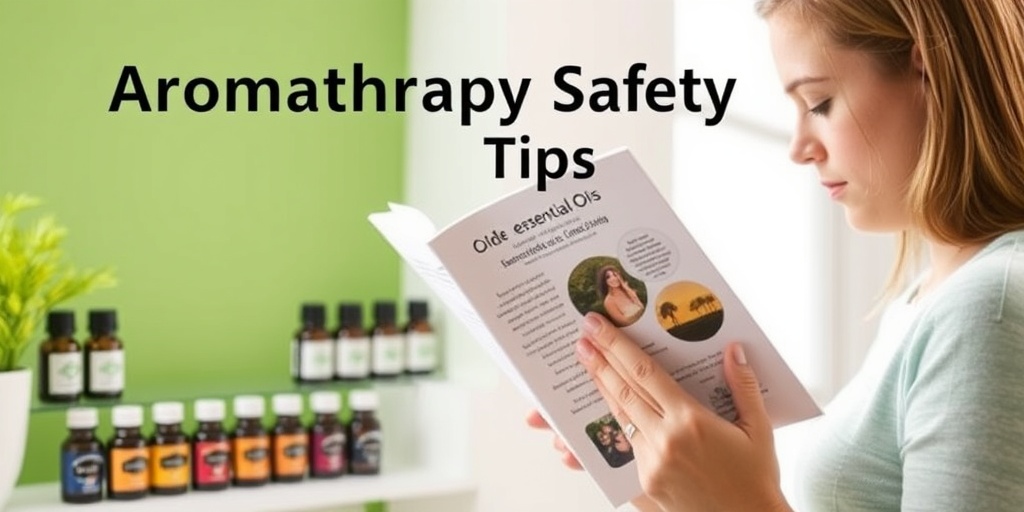
Aromatherapy for Stress Relief
In today’s fast-paced world, stress has become a common companion for many of us. Fortunately, aromatherapy (essential oils therapy) offers a natural and effective way to alleviate stress and promote relaxation. By harnessing the power of essential oils, we can create a calming environment that soothes the mind and body.
What is Aromatherapy?
Aromatherapy is a holistic healing practice that utilizes the aromatic properties of essential oils extracted from plants. These oils are known for their therapeutic benefits, which can help improve emotional and physical well-being. When inhaled or applied topically, essential oils can influence our mood and promote relaxation.
Essential Oils for Stress Relief
Several essential oils are particularly effective for stress relief. Here are some of the most popular options:
- Lavender: Known for its calming properties, lavender oil can help reduce anxiety and promote better sleep.
- Chamomile: This oil is often used to soothe the mind and body, making it ideal for stress relief.
- Bergamot: With its uplifting scent, bergamot oil can help alleviate feelings of stress and anxiety.
- Ylang Ylang: This sweet-smelling oil is known to reduce tension and promote a sense of peace.
How to Use Aromatherapy for Stress Relief
Incorporating aromatherapy into your daily routine can be simple and enjoyable. Here are some effective methods:
- Diffusion: Use an essential oil diffuser to disperse the calming scents throughout your space. This method is perfect for creating a relaxing atmosphere at home or in the office.
- Topical Application: Dilute essential oils with a carrier oil (like coconut or jojoba oil) and apply them to pulse points, such as wrists or behind the ears. This allows for direct absorption into the skin.
- Bathing: Add a few drops of your favorite essential oil to a warm bath for a soothing experience that can melt away stress.
- Inhalation: Simply inhale the scent of essential oils directly from the bottle or place a few drops on a cotton ball and breathe deeply.
Aromatherapy in Daily Life
Integrating aromatherapy (essential oils therapy) into your daily life can enhance your overall well-being and create a more balanced lifestyle. Here are some practical ways to incorporate essential oils into your routine:
Morning Routine
Start your day on a positive note by using essential oils in your morning routine. Consider adding a few drops of invigorating oils like peppermint or citrus oils (like lemon or orange) to your shower or diffuser. These scents can help energize your mind and body, setting a productive tone for the day ahead. 🍋
Workplace Wellness
Enhance your work environment by using essential oils to boost focus and productivity. Oils like rosemary and peppermint are known for their ability to improve concentration. You can use a personal diffuser or apply diluted oils to your wrists for a quick pick-me-up during the day.
Evening Relaxation
As the day winds down, create a calming atmosphere in your home. Use essential oils like lavender or frankincense in a diffuser or add them to your evening bath. This practice can help signal to your body that it’s time to relax and prepare for a restful night’s sleep. 🌙
Self-Care Rituals
Incorporate aromatherapy into your self-care rituals. Whether it’s through meditation, yoga, or simply unwinding with a good book, using essential oils can enhance the experience. Consider blending oils that resonate with your intentions, such as geranium for emotional balance or sandalwood for grounding.
By embracing aromatherapy in your daily life, you can cultivate a sense of peace and well-being that supports your mental and emotional health. 🌼
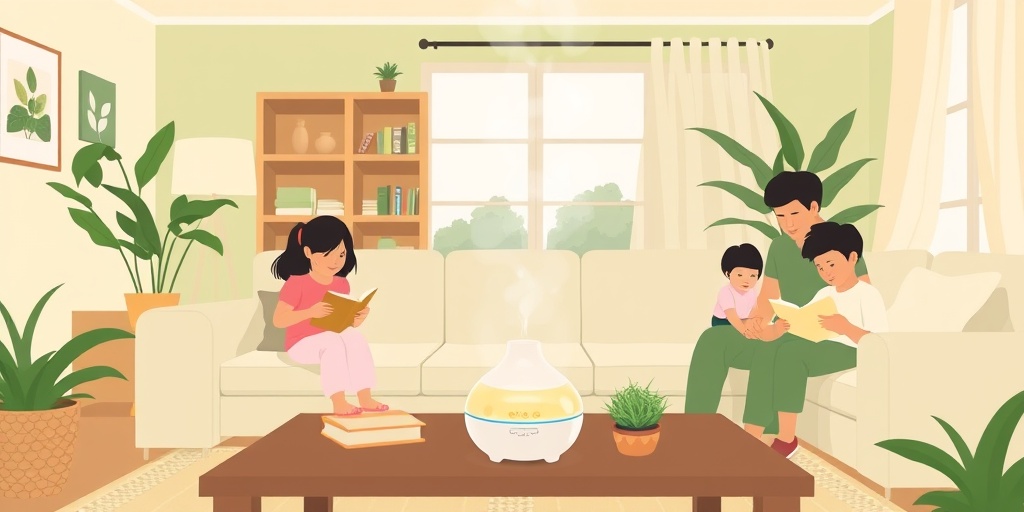
Frequently Asked Questions about Aromatherapy (Essential Oils Therapy)
What is Aromatherapy?
Aromatherapy, also known as essential oils therapy, is a holistic healing practice that uses natural plant extracts to promote physical and emotional well-being. It involves the use of essential oils derived from flowers, leaves, stems, and roots of plants.
How do I use Aromatherapy Essential Oils?
There are several ways to incorporate aromatherapy into your daily routine:
- Diffusion: Use an essential oil diffuser to disperse the aroma throughout a room.
- Topical Application: Dilute essential oils with a carrier oil and apply them to the skin.
- Inhalation: Inhale essential oils directly from the bottle or a cotton ball.
- Bathing: Add a few drops of essential oils to your bath for a relaxing experience.
Are Essential Oils Safe for Aromatherapy?
While many essential oils are safe for use, it is important to follow guidelines to ensure safety:
- Always dilute essential oils before applying them to the skin.
- Perform a patch test to check for allergic reactions.
- Avoid using certain oils during pregnancy or on young children without consulting a healthcare professional.
Can Aromatherapy Help with Stress Relief?
Yes! Aromatherapy is often used as a supportive therapy for stress relief. Essential oils like lavender, chamomile, and bergamot are known for their calming properties and can help reduce anxiety and promote relaxation.
What are the Best Essential Oils for Beginners?
If you’re new to aromatherapy, consider starting with these popular essential oils:
- Lavender: Known for its calming effects.
- Peppermint: Great for boosting energy and focus.
- Eucalyptus: Helpful for respiratory issues.
- Lemon: Uplifting and refreshing scent.
Can I Use Aromatherapy for Sleep Issues?
Absolutely! Many people use aromatherapy to improve sleep quality. Essential oils like lavender and chamomile can create a soothing environment conducive to sleep. Consider using a diffuser in your bedroom or applying diluted oils to your pillow.
Is Aromatherapy Effective for Pain Relief?
Some studies suggest that certain essential oils may help alleviate pain. Oils like peppermint and eucalyptus can provide relief from headaches and muscle soreness when used topically or in a bath.
Where Can I Buy Quality Essential Oils?
Look for reputable brands that provide pure, high-quality essential oils. Check for third-party testing and read customer reviews to ensure you are purchasing safe and effective products.
Can I Make My Own Aromatherapy Blends?
Yes! Creating your own blends can be a fun and personalized way to enjoy aromatherapy. Start by mixing a few drops of your favorite essential oils with a carrier oil, and adjust the ratios to suit your preferences.
Conclusion
Aromatherapy (Essential Oils Therapy) offers a variety of benefits for physical and emotional health. By understanding how to use essential oils safely and effectively, you can enhance your well-being and create a calming atmosphere in your daily life. 🌿

